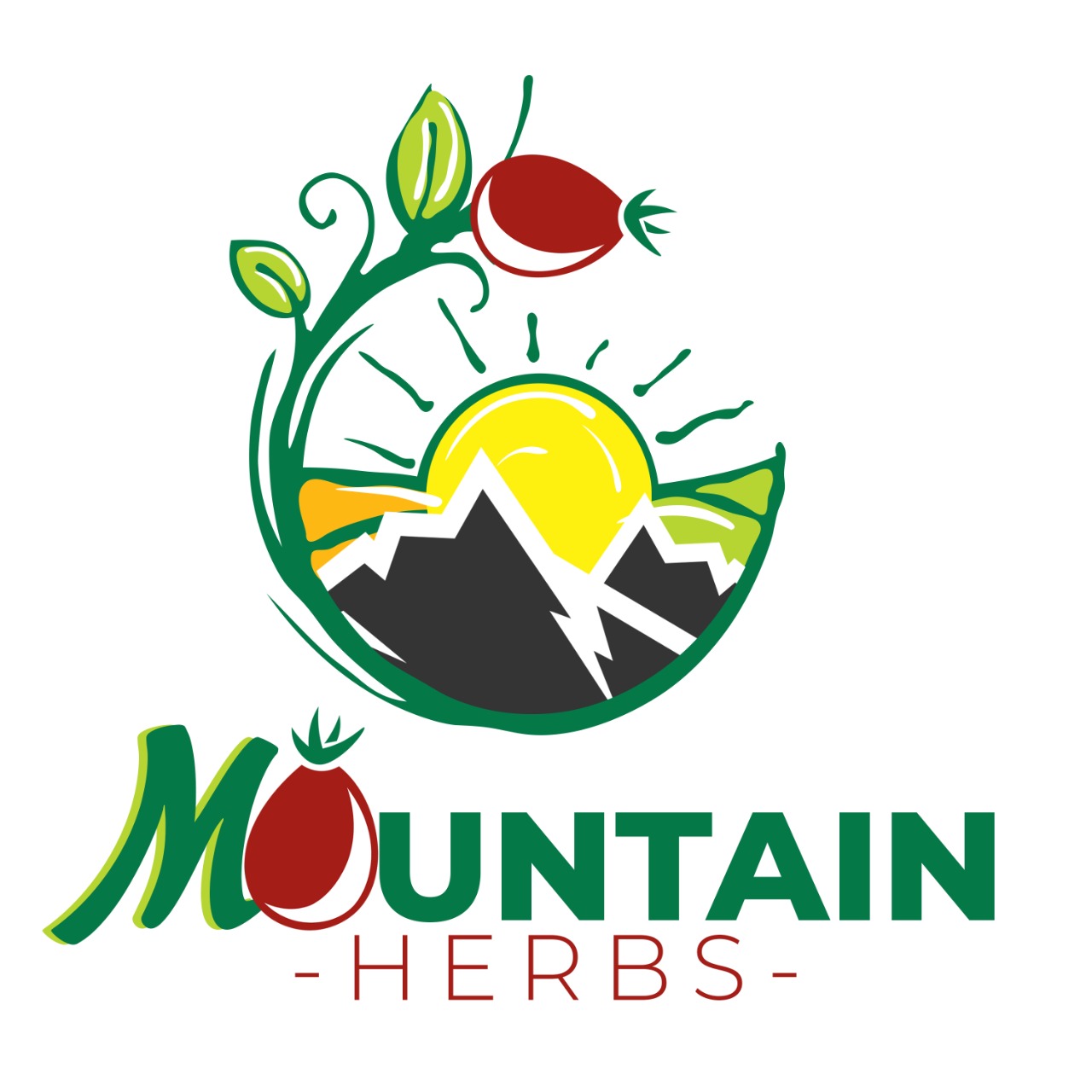OUR PRODUCTS
All our products are wild harvested, by well trained harvesters in the Maluti mountains of Lesotho. After harvesting our products are cleaned, sorted , and dried. After harvesting our products are transported to our facility where we clean, sort and dry.
Our products are packaged in 25kg Polypropilene bags and Quantity of 100kg-FCL
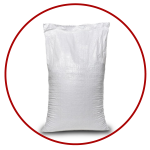
Product packaging
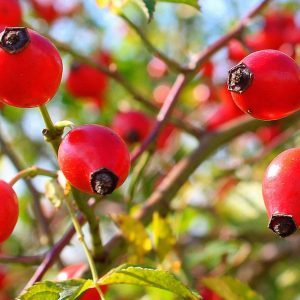
Rosehip
Rosehip
Rose hip is the part of the rose flower just below the petals that contains the rose plant seeds. It has been used for osteoarthritis and contains vitamin C.
While rose hip is often considered a good source of vitamin C, the processing and drying of the plant actually destroys most of it. Besides vitamin C, other natural chemicals found in rose hip may be helpful for a variety of health conditions.
Benefits of rosehip
People use rose hip for osteoarthritis and pain after surgery.
They’re also rich in disease-fighting antioxidants, such as vitamin C, catechins, quercetin, and ellagic acid. A diet rich in these compounds can help lower inflammation and oxidative stress in your body
Furthermore, vitamin C plays a key role in collagen synthesis and immune health
Rosehip oil is a popular anti-aging substance in the beauty community, though research supporting its benefits is limited. It’s made by cold pressing rose hips and extracting their natural oils (10, 11Trusted Source).
Rosehip seeds are high in polyunsaturated fats, which support a healthy skin membrane and protect your skin from inflammatory compounds, such as ultraviolet (UV) rays, cigarette smoke, and pollution (12Trusted Source, 13Trusted Source).
In one small, 8-week study, taking 3 mg of rosehip powder daily led to a significant decrease in skin wrinkles and significant increase in skin moisture content and elasticity (13Trusted Source).
Researchers attributed these results to rose hips’ robust antioxidant, vitamin C, and fatty acid profile, which all protect and replenish your skin barrier (13Trusted Source).
In addition, using vitamin C directly on your skin has been shown to significantly increase collagen synthesis and cell turnover — the rate at which skin cells replenish.
Therefore, products that are naturally high in vitamin C, such as rosehip oil, may have anti-aging effects (14Trusted Source).
Rosehip oil may also aid wound healing. In a recent study, rats treated with this oil had significantly faster wound healing and less scar development than the control group.
NUTRITION
What Are Rose Hips, and Do They Have Benefits?
By Katey Davidson, MScFN, RD, CPT on December 4, 2019 — Medically reviewed by Jillian Kubala, MS, RD, Nutrition
Nutrition
Benefits
Uses
Side effects
Bottom line
We include products we think are useful for our readers. If you buy through links on this page, we may earn a small commission. Here’s our process.
How we vet brands and products
From their soft petals to prickly thorns, roses are a symbol of beauty and health.
They belong to the Rosa genus of the Rosaceae family, which has upwards of 100 species (1).
However, one lesser known part of the rose is the round, seed-filled bulbs known as rose hips, which are found underneath rose petals.
Also called the fruit of the rose, rose hips are usually red-orange, though yellow and black varieties can also be found (2Trusted Source).
Unlike rose blossoms, which bloom in the spring and summer months, rose hips generally grow after the petals have bloomed and started falling off, which is usually in early to mid-fall. In fact, they’re considered sweeter when picked after the first frost of the season (3Trusted Source).
Rich in nutrients and disease-fighting properties, rose hips have gained attention for their role in health and beauty.
This article tells you all you need to know about rose hips, including their benefits, uses, and side effects.
Rosehip nutrition
Inside the rose hip are many small, edible seeds, which are a good source of many nutrients. A 2-tablespoon (16-gram) serving of wild rose hips provides (4Trusted Source):
Calories: 26
Carbs: 6 grams
Fiber: 4 grams
Vitamin A: 4% of the Daily Value (DV)
Vitamin B5: 3% of the DV
Vitamin C: 76% of the DV
Vitamin E: 6% of the DV
Rose hips get their red-orange color from carotenoid pigments known as lycopene and beta carotene. These pigments have been shown to promote skin and eye health (2Trusted Source, 5Trusted Source, 6Trusted Source).
They’re also rich in disease-fighting antioxidants, such as vitamin C, catechins, quercetin, and ellagic acid. A diet rich in these compounds can help lower inflammation and oxidative stress in your body (2Trusted Source, 6Trusted Source).
Furthermore, vitamin C plays a key role in collagen synthesis and immune health (7Trusted Source, 8Trusted Source).
However, the nutrient content of rose hips largely depends on soil and growing conditions, processing techniques, and the specific species. For example, many rosehip varieties are processed with heat and water, which significantly lowers their vitamin C levels (6Trusted Source, 9).
SUMMARY
Rose hips are high in antioxidants, particularly vitamin C. These compounds may offer various benefits for health.
Benefits of rose hips
Rose hips have been used for centuries in traditional and folk medicine for their anti-inflammatory and pain-relieving properties.
Anti-aging properties
Rosehip oil is a popular anti-aging substance in the beauty community, though research supporting its benefits is limited. It’s made by cold pressing rose hips and extracting their natural oils (10, 11Trusted Source).
Rosehip seeds are high in polyunsaturated fats, which support a healthy skin membrane and protect your skin from inflammatory compounds, such as ultraviolet (UV) rays, cigarette smoke, and pollution (12Trusted Source, 13Trusted Source).
In one small, 8-week study, taking 3 mg of rosehip powder daily led to a significant decrease in skin wrinkles and significant increase in skin moisture content and elasticity (13Trusted Source).
Researchers attributed these results to rose hips’ robust antioxidant, vitamin C, and fatty acid profile, which all protect and replenish your skin barrier (13Trusted Source).
In addition, using vitamin C directly on your skin has been shown to significantly increase collagen synthesis and cell turnover — the rate at which skin cells replenish.
Therefore, products that are naturally high in vitamin C, such as rosehip oil, may have anti-aging effects (14Trusted Source).
Rosehip oil may also aid wound healing. In a recent study, rats treated with this oil had significantly faster wound healing and less scar development than the control group. However, human research is needed (15Trusted Source).
May reduce arthritis pain
Rose hips have been well studied for their effects on osteoarthritis pain.
Osteoarthritis is one of the most common types of arthritis, affecting 10% and 13% of men and women over the age of 60, respectively. It’s defined as a gradual decline in cartilage in your joints, which can lead to tremendous pain and inflammation (16Trusted Source, 17Trusted Source).
A recent review of 24 studies found that supplementing with rose hips may help relieve osteoarthritis symptoms by combating oxidative stress and inflammation in your joints (17Trusted Source).
Additionally, a review of three studies noted that people taking rosehip powder were twice as likely to report improvements in osteoarthritis pain. Still, a major caveat is the limited number of studies (18Trusted Source).
Finally, a recent review observed that rose hips reduced pain and stiffness in those with osteoarthritis but did not improve range of motion (19).
While rose hips appear to improve osteoarthritis pain, more research is needed to better understand appropriate dosages.
May help with fat loss
Rose hips have been studied as a potential fat loss aid.
In a 12-week study in 32 people, taking a 100-mg rosehip tablet each day significantly decreased abdominal fat, compared with the control group. The authors attributed this effect to tiliroside, a potent antioxidant that may increase fat metabolism (20Trusted Source).
This effect has also been shown in a number of rodent studies. However, more extensive research is needed (21Trusted Source, 22Trusted Source).
May improve heart health
Consuming rose hips may boost heart health by lowering cholesterol and blood pressure.
In a 6-week study in 31 people, drinking a rosehip beverage containing 40 grams of rosehip powder daily led to significant reductions in blood pressure, total cholesterol, and LDL (bad) cholesterol, compared with the control group (23Trusted Source).
The drink also packed 31 grams of fiber. Not only is high fiber intake associated with better heart health, but rose hips’ high antioxidant levels may also play a role
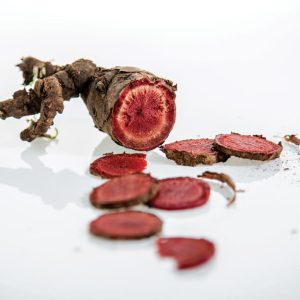
Pelargonium Sidiodes
Pelargonium Sidiodes
Pelargonium Sidoides is an herb that has been used in traditional medicine in Lesotho for centuries. It is used in Europe to treat the common cold and bronchitis. In laboratory studies, this herb was shown to kill bacteria, viruses, and stimulate the immune system. Human studies show that it can reduce the symptoms of common cold and bronchitis
Benefits of Pelargonium sidiodes
Common cold
Several studies support use of P. sidoides in reducing symptoms. Such as
Bronchitis
Clinical trial data shows that P. sidoides is effective against acute and chronic bronchitis.
The root of the plant is typically distilled into an extract and used in cough and cold remedies to alleviate symptoms and reduce the duration of illness
Dysentery or Diarrhea
Although P. sidoides is used to treat dysentery in traditional medicine.
The root of the plant is typically distilled into an extract and used in cough and cold remedies to alleviate symptoms and reduce the duration of illness
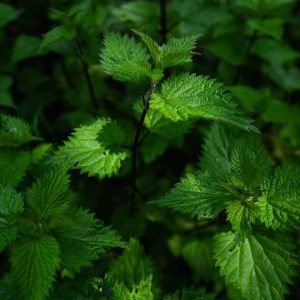
Stinging Nettle
Stinging Nettle
Stinging nettle (Urtica dioica) is a plant with pointed leaves and white to yellowish flowers. The root and above ground parts are used for diabetes.
The stinging nettle plant is typically 2-4 meters tall. It contains ingredients that might decrease swelling and increase urination. The leaves are sometimes eaten as a cooked vegetable.
Stinging nettle is most commonly used for diabetes and osteoarthritis. It is also sometimes used for urinary tract infections (UTIs), kidney stones, enlarged prostate, and hay fever
Stinging nettle is an alternative remedy that people use for many reasons, including reducing arthritis pain and treating seasonal allergies.
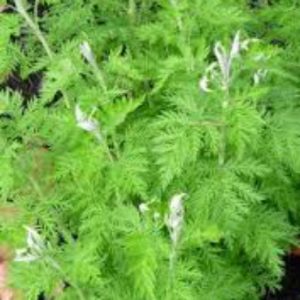
African Worm Wood (artemisia Afra)
Artemisia Afra
Artemisia Afra, the African wormwood, is a common species of the genus Artemisia in Africa, with a wide distribution from Lesotho, to areas reaching to the North and East, as far north as Ethiopia. Artemisia afra is the only species in this genus indigenous to the African continent
Benefits
African wormwood (A. afra) is a traditional herb used in the southern regions of Africa to treat coughs, colds, diabetes, bladder and kidney disorders, influenza, heart inflammation, rheumatism, as well as malaria. For bronchial ailments, African wormwood is prepared as a syrup and also made used as a tea by drying the leaves.
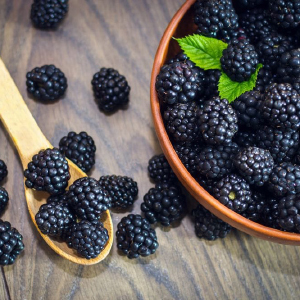
BlackBerry
BlackBerry
Blackberry plants are fruiting shrubs. They belong to the genus Rubus in the rose family Rosaceae. Blackberry bushes produce fruits called blackberries. Much like their close cousin the raspberry, blackberries contain high levels of antioxidants, including vitamin C, vitamin K, potassium, and dietary fiber. They contain very little overall fat and zero saturated fat. They contain a small amount of protein, but most of their calories come in the form of carbohydrates.
Benefits
Boosts your body functions. Blackberries are an excellent source of vitamin C, vitamin K and manganese.
Improves digestion and blood sugar levels.
Reduces inflammation.
Prevents cardiovascular disease.
Protects and improves brain function.
Prevents cancer
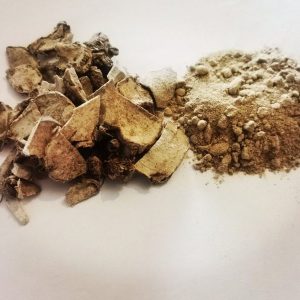
Wild African Ginger
Wild African Ginger
Wild African Ginger has a variety of medicinal and traditional uses to the native African people. The rhizomes and roots are chewed fresh to treat asthma, hysteria, colds, coughs and flu. It is used to treat malaria and is chewed by women during painful menstruation
Siphonochilus aethiopicus, commonly known as African ginger or wild ginger is used to cure a variety of health conditions/illnesses, such as coughs, colds, asthma, nausea, headaches and pains
Benefits
African wormwood (A. afra) is a traditional herb used in the southern regions of Africa to treat coughs, colds, diabetes, bladder and kidney disorders, influenza, heart inflammation, rheumatism, as well as malaria. For bronchial ailments, African wormwood is prepared as a syrup and also made used as a tea by drying the leaves
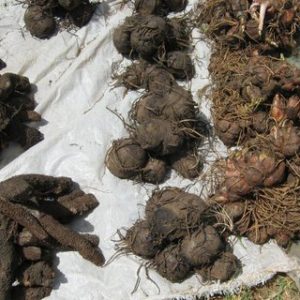
African Potato
African Potato
African Potato (hypoxis hemerocallidea), is used for enhancing immune system in Southern Africa.
Hypoxis hemerocallidea, the African star grass or African potato, is a medicinal plant in the Hypoxidaceae family. It is native to southern Africa from Lesotho as far north as Mozambique and Zimbabwe. This plant is the best known member of this genus.
Traditionally, African Potato was used for insanity, barrenness, bad dreams, intestinal parasites, urinary infection and cardiac diseases among other diseases. Nowadays it is used to increase immune function, for headache, dizziness, prostate hypertrophy, burns, and ulcers.
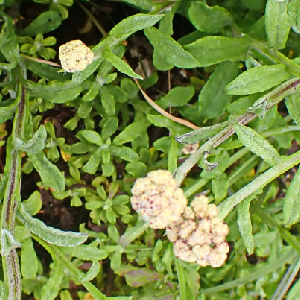
Helichrysum Odoratissimum
Helichrysum Odoratissimum
Helichrysum odoratissimum is a strongly aromatic, much branched perennial herb with small silvery leaves and small yellow flowerheads borne in groups at the tips of the branches; woody at the base, erect or diffuse, up to 50 cm high.
Several species of Helichrysum are used in traditional medicines, but H. odoratissimum is widely used as a perfume and to repel insects. Southern Sotho women make a perfumed ointment from this plant.
Leaves and stems are widely used as incense to invoke the goodwill of the ancestors; the smoke is sedative and helpful for insomnia. In the Eastern Cape people inhale it as a protective cleanser and it is also used medicinally for coughs and colds. Some people boil the plant and use it as a facial ointment for pimples. In Lesotho they burn this plant to fumigate sick rooms. It is also effective in repelling parasites and insects thus ensuring a good night’s rest.

